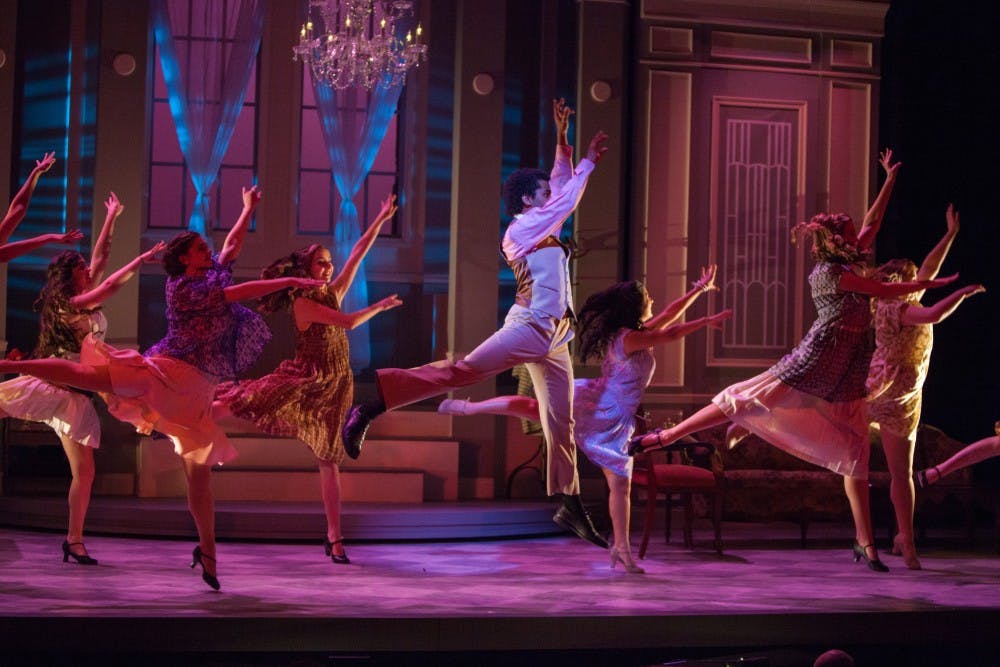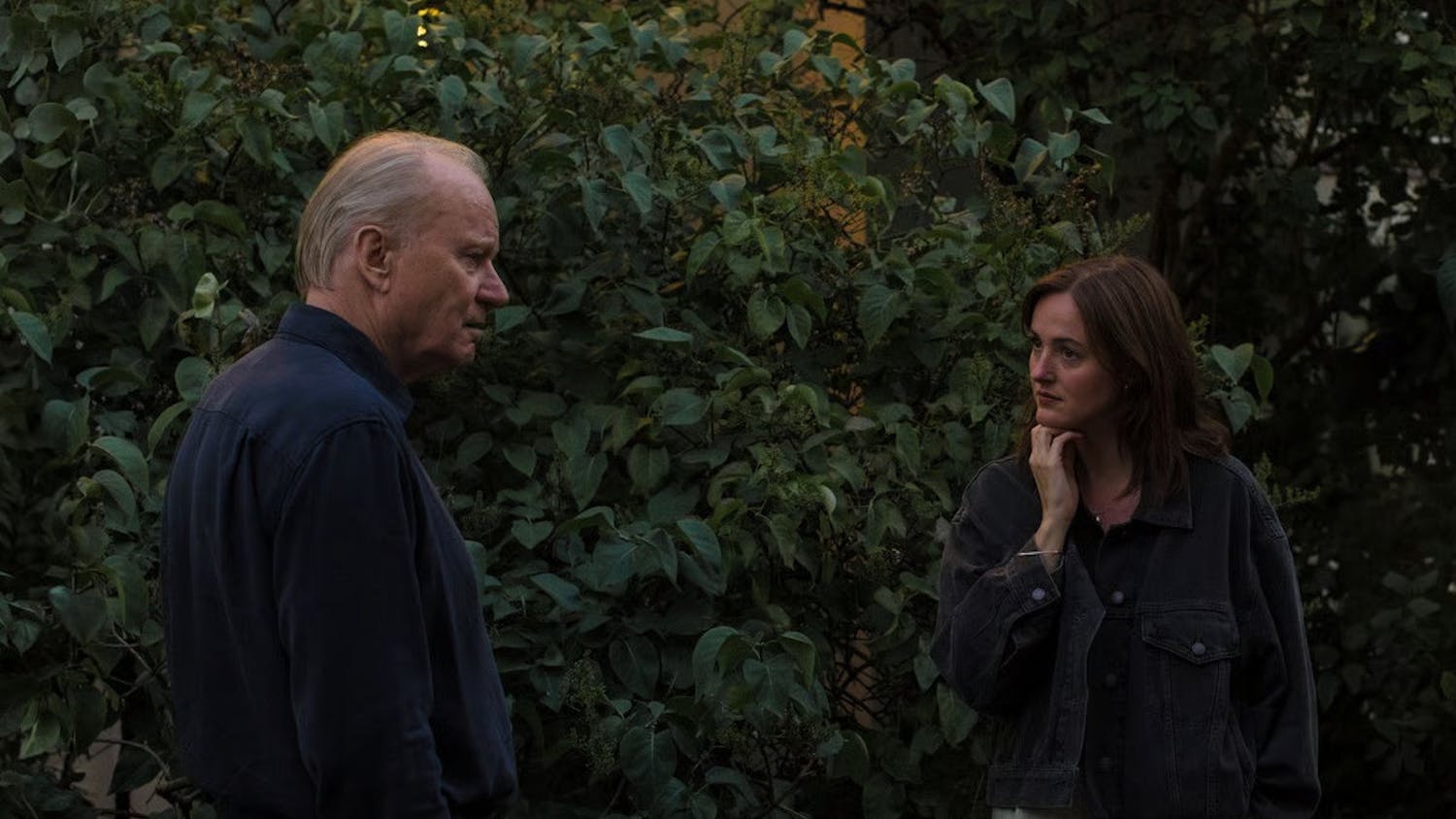It’s 1997. Theater professor Caleen Jennings calls student Tru Tranh into her office. She just cast him as Richard III in Shakespeare’s “Richard III” and believes he’s the most capable actor to play the role. Yet, she’s thinking: how does Tranh feel as an Asian-American portraying a villain in Shakespeare’s canon, possibly enforcing a stereotype?
“Caleen, are you kidding me?” Jennings recalls Tranh asking. “Are you asking me if I want to turn down the role?”
“No, but I want you to be aware of how this can be viewed and interpreted,” Jennings replied.
Jennings and other AU theater faculty say they are committed to teaching, promoting and creating diversity within the department. However, the department wasn’t always so focused on diversity. Jennings said she had only three African-American theater majors when she first arrived at AU in 1989, and Tranh was her first Asian-American theater major. The faculty often had to go outside the department and seek out other students to cast shows with people of color, Jennings said.
Karl Kippola, the theater and musical theater program director, said the program’s profile rose significantly after the University invested in the Greenberg Theater in 2003 and the Katzen Arts Center in 2005. The rise of the program necessitated an equal rise in diversity.
“We have a more diverse range of students,” Kippola said. “Especially in the last half dozen years or so, we have started getting consistent progression, from having just a few students of color to having a greater percentage.”
There are currently about a dozen students of color out of about 90 students in the program. Kippola said that some reasons why the theater program has become more diverse is because more students want to pursue a college degree in theater, and the theater industry has started embracing diversity more.
“I think there are a greater number of students who are looking at [the arts] for a viable future,” Kippola said. “And on some level, commercial professional theater has realized the importance of diversity, not only to employ and tell the story of the artists, but also to attract and reach a greater range of audiences.”
Over the years, the department has developed initiatives to teach students about diversity within theater courses. Jennings teaches the AU Scholars section of Theatre: Principles, Plays, and Performances, in which she has her students explore the parallels between Shakespeare and African-American playwright August Wilson.
“In our classes, we explore the plays that tell people’s stories and that represent different cultures, [and] we’re also using our own instruments to embody other people,” Jennings said. “So I think theater, our classes, our season can be a tremendous way for this community as a whole to process Charlottesville, as a way to process who we are now, who we thought we were, who we are.”
One new effort to teach AU students about diversity in theater is the #BroadwaySoDiverse class. Originally developed by former musical theater professor Elizabeth Gerbi and currently taught by ethnomusicology professor Kendra Salois, this Complex Problems course teaches students how to engage in critical conversations about diversity in musicals.
“It’s not only that the arts can promote people thinking more explicitly about dignity and equity─we’re good at that historically and we’re proud of that─but that every class should and can be able to do that,” Salois said. “It could be math. It could be physics. It could be computer science. Everyone can work that in some way.”
Salois said that students will watch plays while exploring different aspects of diversity. For example, while studying Latinx representation, students will see a local production of Lin-Manuel Miranda’s “In The Heights.”
Sultana Qureshi, a freshman in the School of Communication who is taking #BroadwaySoDiverse, said that programs like this are one reason why she chose AU.
“All in all, good discussions are happening,” Qureshi said. “It’s only the beginning and a lot more good conversation will happen.”
Conversations about diversity also occur frequently between the theater faculty, of which three of the seven full-time professors are black. Jennings said students can grow and learn because everyone on the faculty invests.
“My white colleagues will come to me, saying ‘are there identity issues here I should be looking at?’” Jennings said. “So, we talk about race and implications of casting, what does it mean to cast the black man as the villain? We’re confronting those issues all the time.”
Junior theater major Maya Hodges said she believes that theater professors ensure that students of color feel invited in the classroom.
“It all starts within the classroom,” Hodges said. “I knew that once I felt comfortable in the classroom, that would allow me to feel confident in auditions and other [Department of Performing Arts] events.”
However, some believe that there is still more to be done. Junior theater major Andrew Watring said that although there are people at the top of the department who have made positive actions towards inclusion, those actions are not sufficient for what students need.
“After the event of racial violence on campus, the department issued no statement and did not reach out to students of color personally, even though our department prides itself on the personal relationship between professors and students,” Watring said. “There have not been systemic, department-wide efforts to demonstrate culturally responsive teaching in the classroom. The plays we read, discussions we have and material we deal with daily rarely connects with all students, especially not students of color.”
Another one of Watring’s criticisms was that in the past few years, the department has not mounted productions dealing with racial or cultural themes, highlighting students of color or depicting stories that are relevant to them. Kippola said that the program’s students are still predominantly white, limiting the range of plays they can perform.
Moving forward, Kippola said, the theater and musical theater program has prioritized creating scholarships and financial assistance for students of color. There are currently six to ten merit-based scholarships selected by faculty; while students don’t need to be non-white to receive one, the faculty looks for every opportunity to encourage those students through scholarships.
In the meantime, student productions look to challenge the norm, like AU Rude Mechanicals’ re-imagined “Hamlet,” featuring students of color playing traditionally white roles, and “Shakespeare Is A White Supremacist,” a devised piece that will examine racist institutions and constructs of supremacy in Shakespeare’s writing. According to Watring, who is the Artistic Director of Rude Mechanicals, these productions continue work begun last year when Watring was the Outreach Director and encouraged diversity in the group’s shows.
“We want to tackle these issues because all people should be tackling these issues,” Watring said. “Theatre is our sphere, and we want to use our platform to support underrepresented voices and speak loud truth to power.”
Although she may not be able to do the August Wilson play of her dreams before she retires in 2020, Jennings is hopeful for the future. She said the cast of this year’s annual freshman showcase, “Overture,” was the most diverse it has ever been.
“Things are changing and improving,” she said. “I believe that over time that will become more of the norm than the exception.”
This story was originally published in the Oct. 20 print edition of The Eagle.





